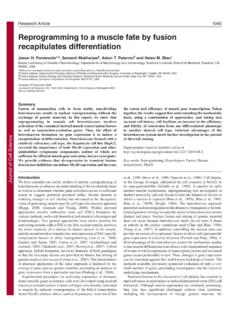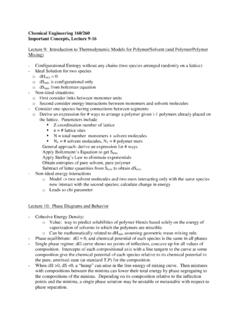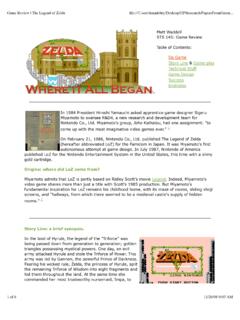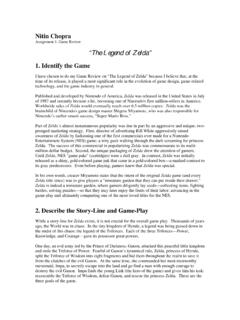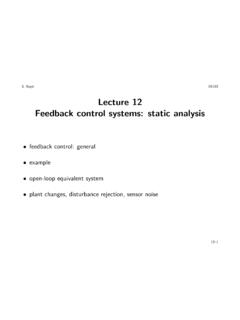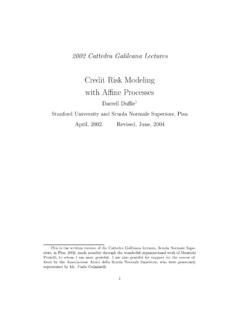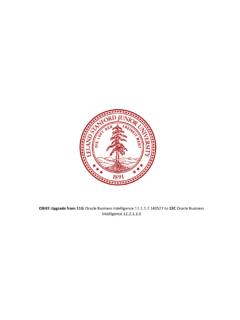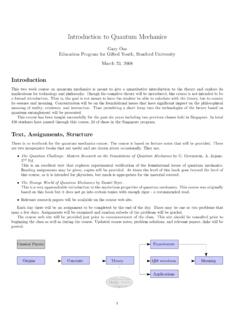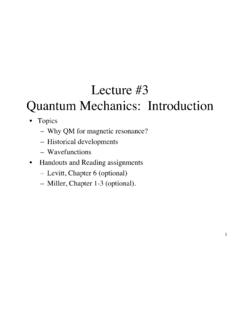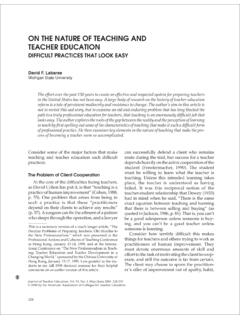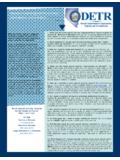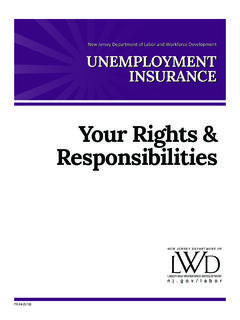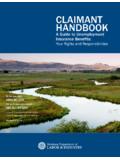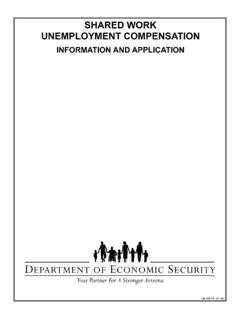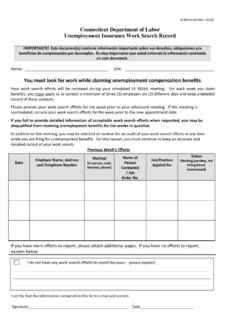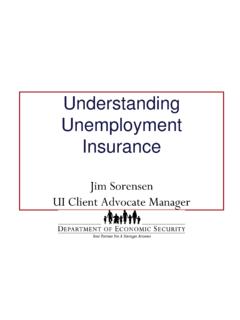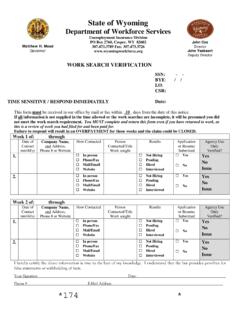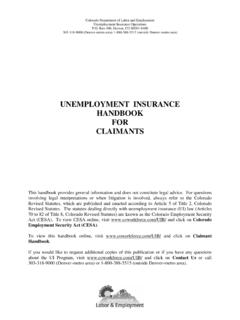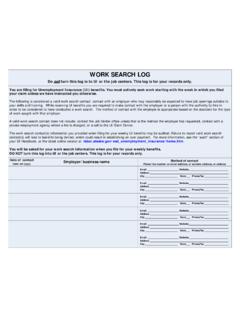Transcription of Unemployment Insurance and Job Search Activity
1 Unemployment Insurance and Job Search Activity : Evidence from Random Audits * Cristobal Young, Stanford University July, 2012 WC: 8,063 Abstract Objective: This paper examines the extent to which Unemployment Insurance (UI) recipients are actively searching for work , and how benefit generosity influences Search effort. Critics of the UI program focus on the disincentive of providing income support to the jobless. However, many unemployed people become discouraged, give up on the job Search , and drop out of the labor market altogether. From this perspective, UI may help sustain Search effort in the face of repeated rejection.
2 Method: Drawing on 378,000 administrative audits of UI recipients actual work Search records, I test the effect of benefit generosity on the probability of actively searching for work . Results: The results show that 1) the great majority of UI recipients maintain an active work Search ; 2) higher UI benefits incentivize job Search , producing a greater likelihood of active Search ; 3) Search Activity declines over time, consistent with discouragement; 4) there is no observed spike in Search at benefit exhaustion; and 5) the positive effect of UI benefits on Search Activity is strongest among low-wage workers.
3 Conclusion: UI appears to support and encourage active job Search among people who would otherwise drop out of the labor force. * Direct correspondence to Cristobal Young, Department of Sociology, Stanford University, 450 Serra Mall, Building 120, Room 160, Stanford, CA 94305 The author would like to thank Paul DiMaggio, Martin Ruef, Sara McLanahan, and Patricia Young for helpful feedback and suggestions. A version of this paper was presented as the 2011 annual meeting of the American Sociological Association. 2 Introduction How does Unemployment Insurance affect the commitment to Search for work ?
4 A key condition of the program is that recipients be actively searching for work . However, economic Search theory suggests the program creates a disincentive to find new employment (Mortensen 1977), and empirical work shows that UI leads to longer durations of Unemployment (Card and Levine 2000; Meyer 1990). These studies do not, however, explicitly look at Search This paper advances the argument that UI pays people to Search for work , creating moral suasion, material incentives, and financial liquidity in support of Search . This may have important effects in a context where the unemployed are at high risk of quitting Search and dropping out of the labor market.
5 Indeed, in a typical month, a quarter of the unemployed exit the labor force almost the same proportion that find a This general fact has not been well incorporated into Search models. And preventing labor force drop out may be an important side effect of UI policy. Scholars have found that in Canada, where UI benefits are more generous and accessible, unemployed workers are much less likely to give up searching for work than in the United States (Card and Riddell 1997; Riddell and Sharpe 1998). The UI program may encourage jobless people to remain in the market, and keep searching. Earlier research, though scattered, has also suggested that UI benefits may reduce the rate of labor force dropout and increase the likelihood of Search (Atkinson and Micklewright 1991; Barron and Mellow 1981).
6 Much research has examined how Unemployment Insurance affects the rate of job-finding consistently showing that generous benefits prolong the duration of Unemployment . However, the reasons for this result are not entirely clear. For some scholars, this work shows 1 Even considering only supply side factors, Unemployment duration is a product of both Search and reservation wage. 2 Author s calculations from the CPS gross flows data, 2000-07. See Ilg (2005) for similar estimates from earlier years. 3 that UI subsidizes the price of leisure, reducing the motivation to return to work (Feldstein 2005).
7 For others, this work suggests that committed job searchers are using UI as a way to hold out for a better job (Chetty 2008). These conflicting interpretations are not yet settled. The contribution of this study is to look at job Search Activity , rather than the duration of Unemployment or the rate at which unemployed people find jobs (see also Krueger and Mueller 2010). Searching for work is not the same as actually finding work . This is true even ignoring the demand side of the labor market. UI may affect either Search effort, reservation wages, or both. By focusing on Search Activity (rather than job-finding), one can parse out the issue of reservation wages, and more directly address the issue of how UI affects people s active efforts to find a new job.
8 While research in economics has focused on duration of Unemployment , there is a rich sociological literature on job Search activities and strategies (Granovetter 1995, Mouw 2003, Fountain 2005, Yakubovich 2005). This work , however, has not generally focused on policy or the Unemployment Insurance program (though see Sjoberg 2010). This paper combines the economic focus on UI policy with the sociological focus on actual Search Activity . Empirically, this study draws on a unique administrative data set of random audits of UI recipients actual work Search records. The data set includes some 378,000 audits, covering all states over the years 1988-2006.
9 The results indicate that (1) most UI recipients are engaged in active work Search , and (2) UI generosity increases the probability of searching. This suggests that, rather than inducing leisure , UI helps to sustain a vigorous job Search . Background The relationship between UI benefits and job finding (ie, the duration of Unemployment ) has been extensively studied. There remain active debates over the meaning of the empirical 4 results, which highlights the ambiguity of using re-employment to analyze the impact of Unemployment Insurance . After reviewing this literature, I discuss how focusing on Search effort (rather than just re-employment) can shed crucial light on our understanding of the UI program.
10 The generosity of UI benefits directly affects how long people take to find a new job. Both the dollar amount of benefits, and the duration of those benefits, matter. A 10 percentage point increase in benefits, on average, leads to a one-week increase in the duration of Unemployment (Card and Levine 2000; Decker 1997; Meyer 1990). This would imply, for example, that raising the replacement rate from 50 percent to 60 percent would increase the average duration of Unemployment from about 16 weeks to 17 weeks. In terms of benefit length, Card and Levine (2000) found that an extra 13 weeks of extended benefits prolonged benefit duration by one week.
